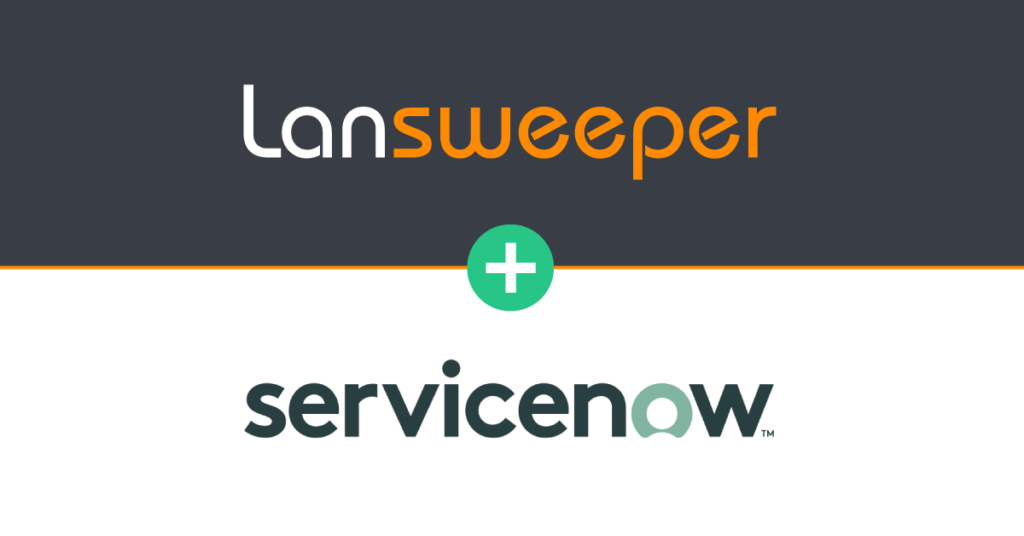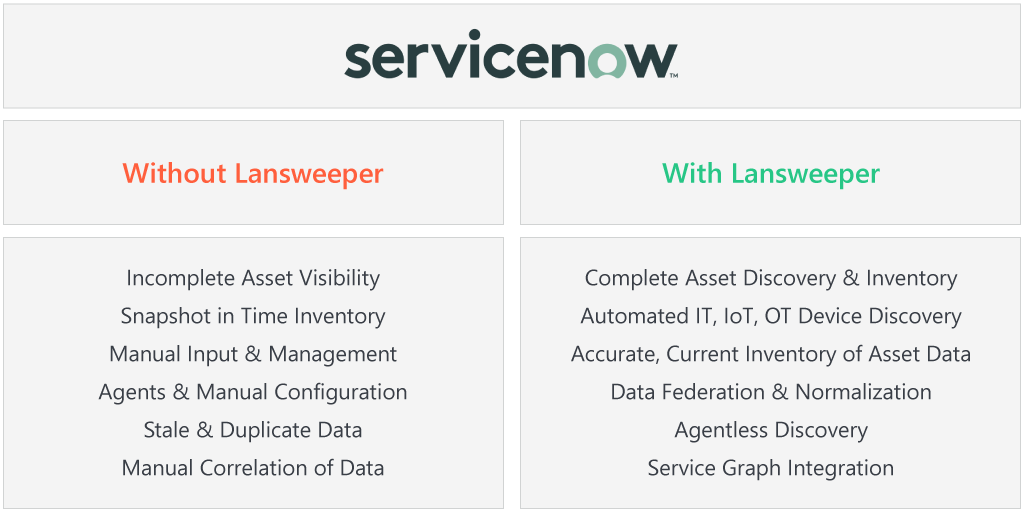
Why do you maintain a (ServiceNow) CMDB? To access complete and accurate information about your IT asset configuration items (CIs), digital services, and the infrastructure that supports them. Having this information at your fingertips enables you to identify and address any vulnerabilities in your infrastructure or on endpoint devices. CMDBs are increasingly important, as IT infrastructures continue to expand to accommodate remote and hybrid work environments and expand worker mobility and BYOD initiatives, trends that have resulted in the proliferation of devices and device types connecting to corporate networks.
As the leading service management platform, ServiceNow is used by large enterprises that need robust features, scalability, and configuration flexibility. At the heart of the platform is its CMDB, which is used as the core data source for ITIL processes and creating custom workflows. ServiceNow offers data health tools such as dashboards to help improve IT workflows, and Service Graph Connectors that accurately import and standardize external data into your CMDB. The platform helps IT teams map, query, and understand complex CI relationships by visualizing the data.
But what happens if the data stored within the ServiceNow CMDB is incomplete, inaccurate, or out of date? How can IT teams effectively manage their CIs and services if they don’t have all the information they need about the IT estate and the assets that comprise it?
IT service management (ITSM) is far more efficient and effective when the data in the CMDB is complete, accurate, and up-to-date. But without reliable IT asset discovery capabilities, teams may be saddled with slow, manual processes for updating their CMDB. They have to commit in-house resources to hours of manual updates or risk making decisions based on outdated, inaccurate data. The result? High overhead and potentially bad decisions.
Sync Your IT Asset Data with Your ServiceNow CMDB
Enter Lansweeper, the leading IT Asset Data solution. Lansweeper integrates seamlessly with ServiceNow, to ensure high data quality, timeliness and completeness.
Lansweeeper leverages advanced agent-based and agentless scanning technology to collect in-depth data from all devices across a network, from servers and other IT infrastructure to endpoint devices within the four walls of the corporate office or in remote locations, as well as operational technology (OT) in the case of manufacturing facilities. The platform’s AI-powered Credential-free Device Recognition (CDR) technology creates a fingerprint of every IT asset – without the need for credentials. Additionally, Lansweeper’s Asset Radar is able to detect a device the moment it connects to the network and record detailed information about it, even if it’s only connected for a few minutes.
Once Lansweeper collects all of the IT asset data, the data is automatically synchronized with the ServiceNow CMDB, so that the ITSM tool can benefit from the most timely, accurate, and complete data available. Lansweeper’s asset attributes correspond to ServiceNow’s CI classes, so that the Lansweeper data appears in ServiceNow as attributes, labeled list data, and relationships, enabling you to make the best decisions for your CIs.
Before and After: The Lansweeper Difference
What was it like maintaining ServiceNow’s CMDB before Lansweeper? Here’s a before-and-after summary:
Before
Prior to the integration with Lansweeper, ServiceNow users often had incomplete asset visibility and had to perform manual input and management tasks to keep the CMDB up-to-date. Installing agents on devices was necessary for tracking them, and this required manual configuration. Unfortunately, due to all the slow, manual updates and configuration requirements, IT teams often had to work with stale and duplicate data, and manually correlate the data to ensure accuracy and completeness.
After
Lansweeper’s integration with ServiceNow enables data sharing and workflows that are driven by a single source of truth — a centralized IT asset inventory that is always complete, accurate, and up-to-date. Lansweeper data is automatically synced with ServiceNow, eliminating all manual tasks associated with collecting, inputting, and updating IT asset data in the CMDB. No agent installations or credentials needed — Lansweeper’s agentless scanning works across all devices — IT, OT, and IoT — for agentless, credential-free discovery.

Not only can ServiceNow users leverage Lansweeper data to improve service management, but they can also respond faster to cybersecurity incidents, identify and fix hardware and software vulnerabilities that could open up an organization to cybercrime or data loss, and corruption, and support business-related tasks such as helpdesk or cloud migration.
As Lansweeper’s Partner Alliance Manager, Cassandra Lloyd, said during a recent interview, “By creating a single source of truth for all your IT asset data, Lansweeper eliminates one of the biggest hurdles in IT asset management — knowing your IT — as well as time-consuming, manual processes, like updating spreadsheets.”
Learn more about Lansweeper for CMDB here, or watch this short video to learn how Lansweeper’s integration with ServiceNow works — and how your organization can benefit.